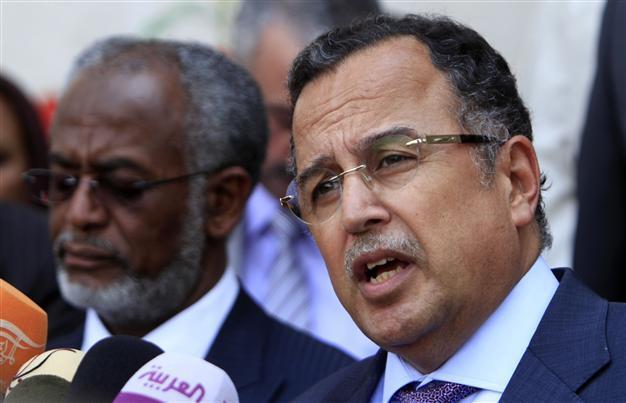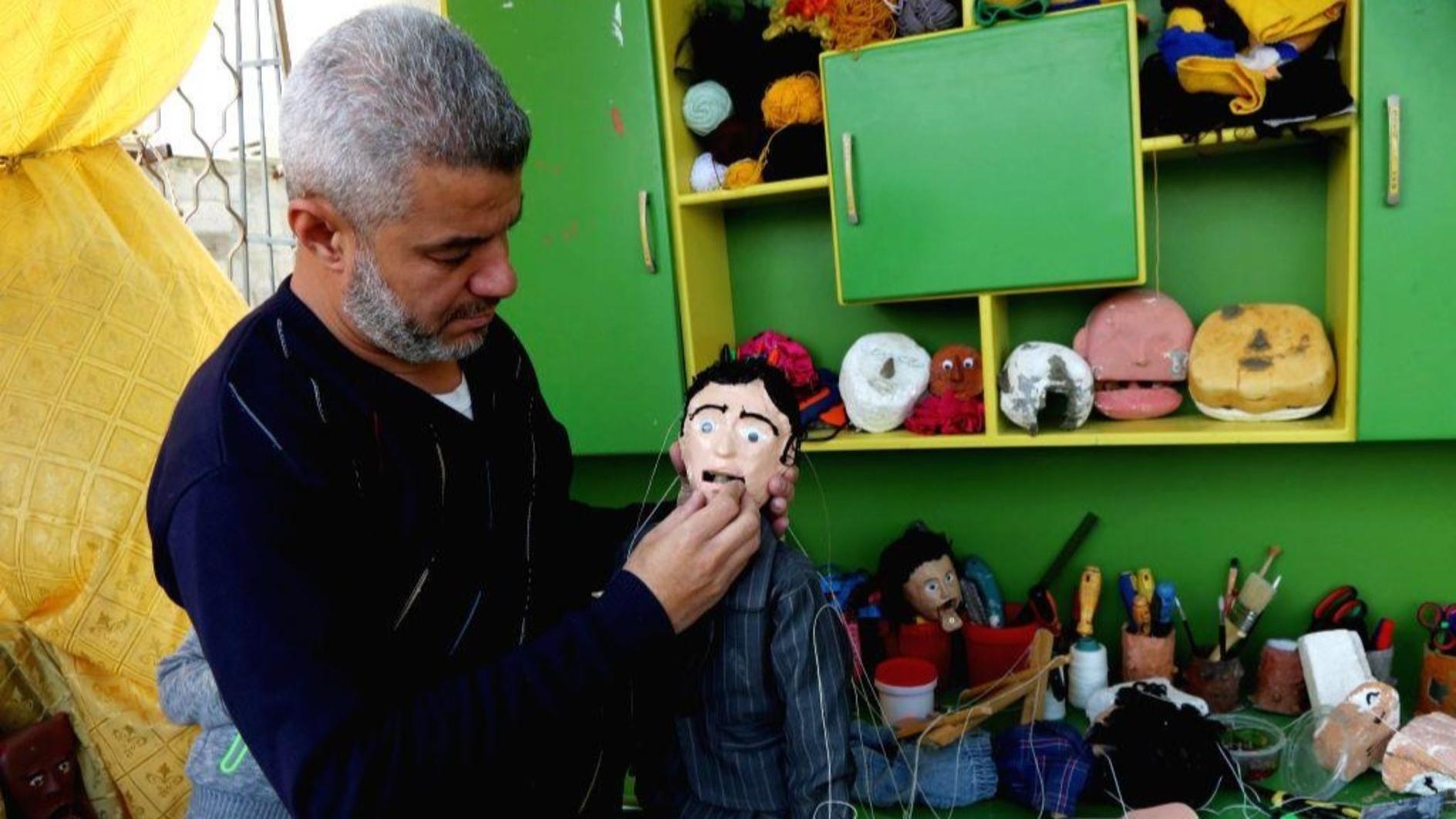Egypt on 'right path', minister says after hundreds die
KHARTOUM - Agence France-Presse

Egyptian Foreign Minister Nabil Fahmy (R). AFP Photo
Egypt is on the "right path", foreign minister Nabil Fahmy said Monday in Sudan on his first trip abroad, after hundreds died in clashes between Egyptian Islamists and security forces."Yes there is a crisis but we are on the right path and I believe in the future," he said after talks with his Sudanese counterpart Ali Karti.
Fahmy said Egypt would push ahead with its "roadmap", an army-drafted plan providing for elections in 2014.
"Our top priority is the national security of Egypt," the minister said.
"The coming Egyptian political system will be a democratic, open regime and open to all according to constitutional rules that will be written soon." Fahmy warned, however, that anyone resorting to violence would be held to account "under the law", and would be left out of Egypt's future.
A former ambassador to Washington, Fahmy was sworn in as part of an interim government after the Egyptian military toppled the country's Islamist president Mohamed Morsi on July 3.
The ouster of Morsi, a former Muslim Brotherhood leader who became his country's first freely-elected president last year, followed popular mass protests calling for his resignation.
But almost 800 people have died in Egypt since last Wednesday when security forces moved to disperse two Cairo protest camps of Morsi's supporters, drawing global condemnation including from Sudan whose government calls itself Islamist.
Egypt's military chief Abdel Fattah al-Sisi pledged a "forceful" response to further attacks on police and government buildings.
Such attacks, said Fahmy, "confirmed that there is a plan to spread fear among Egyptian citizens and to shake Egypt.
"We will not allow anyone to make Egyptians fearful." Fahmy said his regime wants to clarify the situation for its neighbours "especially Sudan", which Egypt and Britain jointly ruled until 1956.
"We came here with a clear political message: We want cooperation for the interests of the countries." Fahmy left Sudan immediately after his talks with Karti.
Khalid Tijani, a Sudanese analyst, said he understood the visit had been planned ahead of the Egyptian crackdown, as part of efforts to reassure Sudan's neighbours after the change of regime.
"Unfortunately now, the scene is different" because of the violence, said Tijani, chief editor of the weekly economic newspaper Elaff.
But he said that, although Khartoum and the Morsi regime had good relations, he thinks the two countries still want healthy ties because they have many mutual interests.
Morsi visited Sudan in April.
There are close links between the Egyptian and Sudanese people, while the countries have extensive economic relations and depend upon the waters of the Nile river.
Fahmy described his trip to Sudan as "normal" and said the neighbours agreed to consolidate economic ties.
His counterpart Karti said the visit "confirms the depths of the relations between Sudan and Egypt." He said Egypt had supported Sudan as it faced civil war in the south from 1983-2005, as well as continuing conflict in Darfur and rebellions in South Kordofan and Blue Nile states.
"Sudan never said this was intervention in its affairs," Karti said.
"We are in need of returning Egypt to this role. Because of this, we are concerned about what's going on in Egypt and we hope Egypt will emerge from this situation through dialogue." But Karti added that the events in Egypt are "an Egyptian affair".
Morsi was elected in June last year after a popular uprising toppled long-time military strongman Hosni Mubarak.
The Mubarak regime for years had strained relations with Khartoum, where President Omar al-Bashir took power in a 1989 Islamist-backed coup.
















